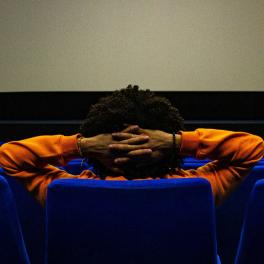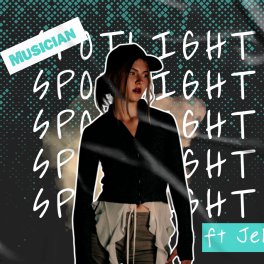
The concept of ‘separating the art from the artist’ has been circling around creative spaces a lot in recent years, and it makes sense that it’s doing so.
The concept itself is to view art as having autonomy and meaning without needing to acknowledge who made it. This is usually a response to an artist being outed as morally corrupt, and not wanting to have yourself or their art associated with them.
Living in the ‘Digital Age’, means having a completely new culture regarding how to scrutinise others. The internet is a place that holds secrets unless you delete them, and even then, it’s debatable whether they’re really gone.
I, myself, have been faced with the dilemma of an artist who I once admired turning out to be a pretty terrible person. Although I had merely read this author’s work and never bothered to look into them personally until as of late, I had heard through the grapevine that their morals aligned with mine. Oh, how wrong I was…
But it begs the question. Can we separate the art from the artist? There are several things we must discuss in order to find an actual answer to that question.
Defining the artist
In the simplest dictionary terms, an artist is someone who creates art. I think we can all agree on that. We can also replace ‘artist’ with ‘writer’, ‘musician’, etc, and replace ‘art’ with the respective craft, and it will still make sense. Art will encompass all those creative endeavours whenever I refer to it, just so we’re on the same page if we weren’t already. The creator creates.
But why do people create art? There will be philosophers out there who will try to convince you there are multiple reasons, but, to me, there’s only one main one: Self-expression. Of course, it’s self-expression. The human is made up of very complicated emotions, thoughts and sensations, and we need an outlet for that. The best form for that outlet is art, in all its diverse and abstract glory.
And how do we create art? In technical terms, we use our hands to shape and mould. But we need to have an idea first, and ideas can be anything deriving from our complexities. The human imagination is vast. Although, we can surmise that there are two ways that an idea manifests. It’s either from:
- Personal influence
OR
- Outside influence
By personal influence, I mean inspiration we find from our own lives. The phrase ‘write what you know’ is especially relevant here, and it is typically given as a piece of advice for those who are just beginning their writing journey. Outside influence refers to other media, suggestions from others, and what we witness in other people’s lives.
Defining the art
Our previous investigation of an artist helps us to define what art is. Art is made up of a person’s ideas, and its visual appearance can vary depending on the tools you’re using to create it. We could leave it at that; however, for the question we want to answer, we have to take a closer look at the content of art. After all, our sense of morality is on the line here.
If art is influenced by life experience, then clearly art is autobiographical in some way. For example, you have genres of literature that are directly, indisputably autobiographical – classified as non-fiction – so there’s no room for argument there. Human identity is reflected in the work, beliefs and traits revealed.
But the waters get murky when we consider fiction. Along this line of thinking, we might ask ourselves ‘what is fiction?’ and that can lead us to a very long conversation, so to summarise, fiction is made up of truths and lies. The story isn’t real, but parts of it will be, and those parts may be moments taken from the author’s life or someone they know. (Harking back to the idea of suggestions, if you add them into the mix, it gets murkier. Although, if the writer took on the suggestions, they must agree with them, right?).
In general, it can be hard to judge what someone is like morally based on a fictional story they’ve written, especially if you don’t know what you’re watching out for. Sometimes, you can tell, but sometimes you need other evidence. And that evidence may not see the light of day until years later.
To conclude…
The answer is that we can’t separate the art from the artist, due to the motivation behind the creation and the shape it takes. Art is an extension of its creator.
There will be situations where we can easily digest a piece of art because it’s essentially a relic of the past and therefore can be viewed historically. Time places a comfortable distance between us and the artist.
But what do we do when a modern artist is exposed for something horrible? Well, if you don’t agree with their actions, the right thing to do would be to stop consuming their art. Don’t give them your money or your attention, for ultimately you are supporting them. That doesn’t mean you should be ashamed of previously appreciating their work and it doesn’t mean you are a bad person.
Unless you know them personally, you won’t ever get full insight into how an artist thinks or acts. Self-expression only goes so far. Art will never wholly capture the human identity because we are more complex than a jigsaw puzzle. The best way I can describe it is that it’s a never-ending, always alternating kaleidoscope.
Appreciate the art you want to appreciate. Engage with it. Only stop if you need to. We can’t separate art from the artist, and that’s not a tragedy. We should recognise the connection, not just because it’s important to hold those accountable for their actions. The good side to art is its potential (and often success) for healing, comfort, and changing the status quo.
If you are interested in this topic check out Moeid Ifran's article "Can Art Transcend the Artist" which presents the counter-argument to this ethical dilemma.
Support Young Creators Like This One!
VoiceBox is a platform built to help young creators thrive. We believe that sharing thoughtful, high-quality content deserves pay even if your audience isn’t 100,000 strong.
But here's the thing: while you enjoy free content, our young contributors from all over the world are fairly compensated for their work. To keep this up, we need your help.
Will you join our community of supporters?
Your donation, no matter the size, makes a real difference. It allows us to:
- Compensate young creators for their work
- Maintain a safe, ad-free environment
- Continue providing high-quality, free content, including research reports and insights into youth issues
- Highlight youth voices and unique perspectives from cultures around the world
Your generosity fuels our mission! By supporting VoiceBox, you are directly supporting young people and showing that you value what they have to say.





